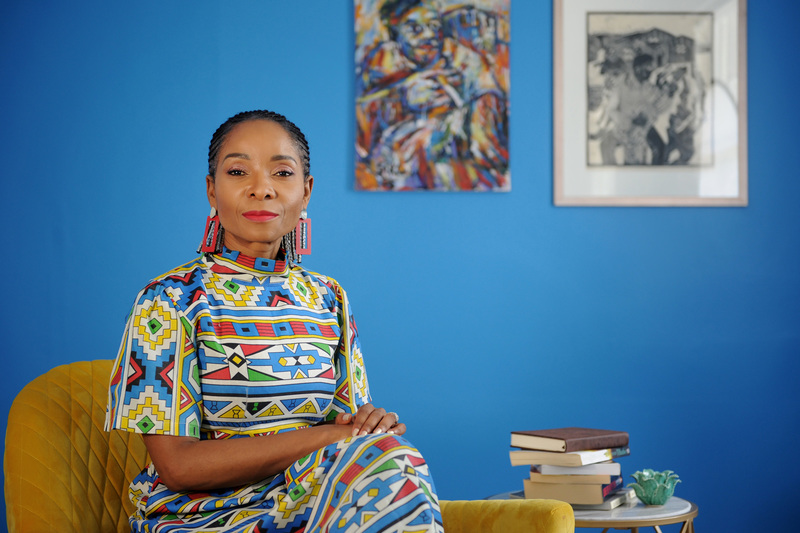Vision 2030 engagement sessions
10 November 2020 | From Kgethi
Dear colleagues
We recently conducted virtual engagement sessions from 28 July until 21 October with staff as well as labour unions on the further development of the framework for Vision 2030. Now that the Student Representative Council for 2020/21 has been constituted, we will continue our engagement on Vision 2030 with student representatives and leaders. In the interim, I wanted to provide colleagues with an update and thank everyone for their participation in the conversations thus far. This vision is aimed at guiding our work going forward. The engagements were aimed at soliciting input and creating ownership in how we all would like to collectively reimagine our university in an increasingly changing and uncertain world. Vision 2030 creates an opportunity and platform for us to do that.
Vision 2030 is built on three inseparable values: excellence, transformation and sustainability. Its four goals are:
- holistic, innovative, future-oriented education
- research that solves Africa’s problems and contributes to global knowledge
- thought leadership
- organisational ethos that supports new ways of thinking, being and doing.
At these virtual engagements I was joined by members of the executive – Deputy Vice-Chancellor (DVC): Research and Internationalisation, Professor Sue Harrison; DVC: Teaching and Learning, Associate Professor Lis Lange; DVC: Transformation, Professor Loretta Feris; and the Chief Operating Officer, Dr Reno Morar. This new institutional strategy, Vision 2030, was presented as part of the process of engagement before the strategy is finalised.
The sessions allowed us as the executive to stress the consultative nature of the work done in drafting the strategy. Thousands of staff members – including academic and professional, administrative and support services (PASS) staff – were involved.
Embracing change
As a university community, we have had various discussions about how we want to work differently, and the COVID-19 pandemic provided an opportunity that forced us to reflect on our work and its impact in a completely different way. The pandemic has catapulted the university five years into the future with blended and distance learning, staff working from home, curriculum renewals and reforms, virtual research conferences and collaborations, changes to the university’s physical infrastructure and a range of other developments. Institutions of higher education are operating in environments that are increasingly unstable, unpredictable and competitive at the same time.
There was, during one of the sessions, an important question that touched on the separation of PASS and academic staff. There is an intentional strategy to overcome this divide at the institution by integrating PASS and academic staff into the development of the strategy. There is a recognition of the creative energy and important role PASS staff play in the academic project.
Futures Think Tank
Led by Professor Alison Lewis, the dean of the Faculty of Engineering & the Built Environment, the Futures Think Tank also foregrounded many of the themes the Vision 2030 task team worked on. An important consideration that emerged from the Futures Think Tank, which helped inform the Vision 2030 strategy, was the fact that the notion of the Fourth Industrial Revolution should be viewed through the lens of South Africa’s challenges, needs and demands. It’s important that we consider the reality in which we operate and the student community that we have. The Fourth Industrial Revolution thus represents profound advancements in science and technology and has important implications for society, affluence, business and higher education institutions.
UCT as an inclusive home for all
A key theme that emerged from some of the sessions was around inclusivity and how it can be embedded in day-to-day life in university operations. There is an ongoing engagement process not only for Vision 2030 but also through the implementation of the inclusivity strategy. Opportunities to engage will take place across the university – down to departmental level. All staff were invited to drive the change and rightfully reclaim their agency and space to feel part of the UCT community.
A blended future academic landscape
As part of the Vision 2030 goals for teaching and learning, UCT will aim to provide a blended academic landscape, which means students will receive a combination of online and face-to-face educational experiences. Unless universities embrace online teaching and other forms of digital education, they will indeed be overtaken and eventually become obsolete. There were concerns about job security in a future where online learning was the norm. Currently, online learning remains as interactive and labour intensive as face-to-face learning. We do not foresee that we are going to need fewer people, on the contrary, we will probably need more. What we need to do is make ourselves sustainable financially to expand as and when necessary.
As we look towards the future, we must think not only of the problems of the past that affect us now. We must look beyond our current context. As we grapple with problems of the now, the world around us is changing.
I would like to thank staff and labour union representatives for attending these sessions and having frank discussions, robust deliberations and asking difficult questions. This process has provided the executive with valuable insights to take forward in finalising the strategy. If you missed any of the sessions, please visit our Vision 2030 website for news from those meetings.
Sincerely
Professor Mamokgethi Phakeng
Vice-Chancellor
Read previous communications:
 This work is licensed under a Creative Commons Attribution-NoDerivatives 4.0 International License.
This work is licensed under a Creative Commons Attribution-NoDerivatives 4.0 International License.
Please view the republishing articles page for more information.








